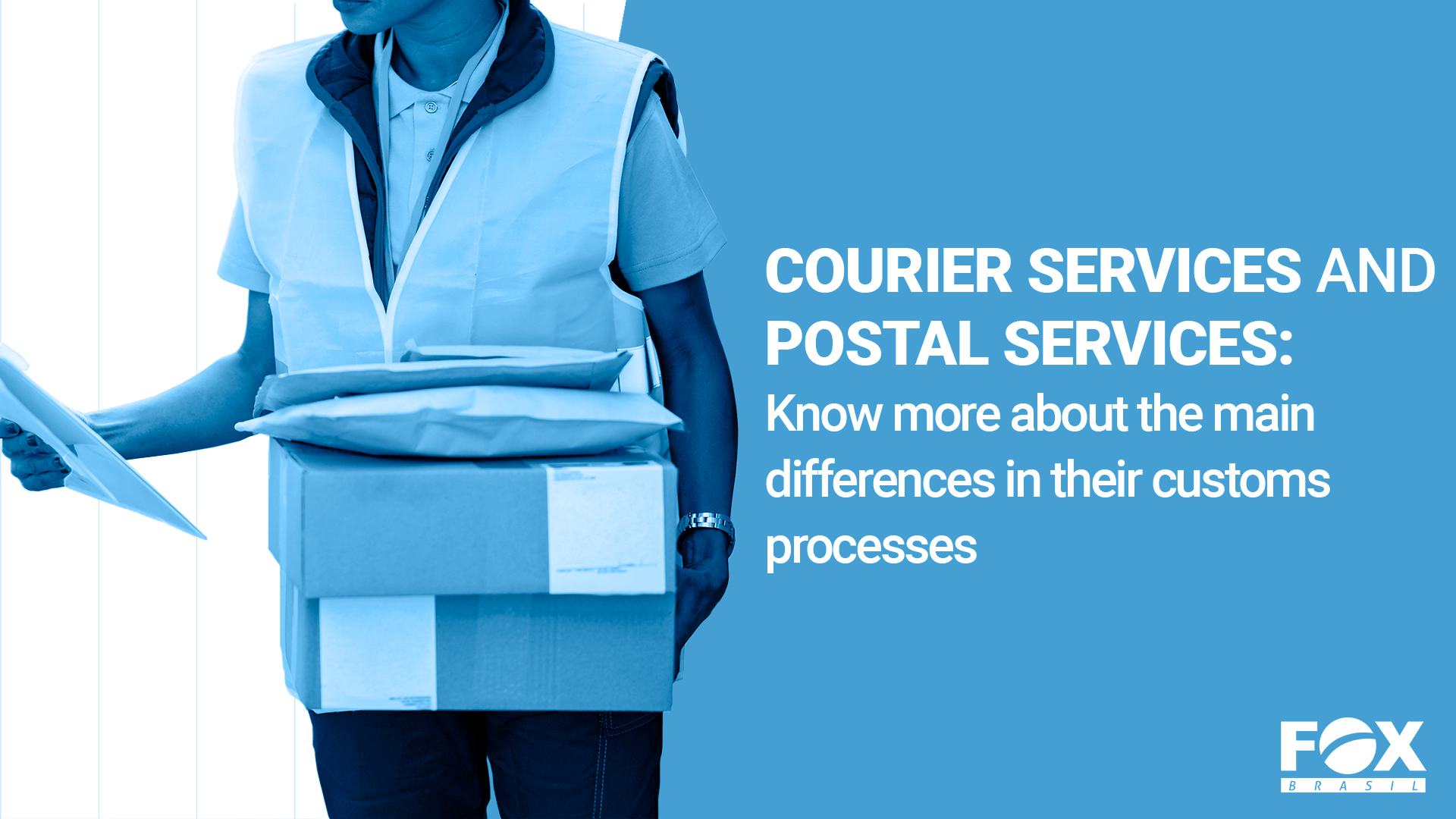Courier Services and Postal Services: Understand the Differences in Customs Procedures

Understand Logistics & Freight
Although courier and postal shipments have very similar concepts, we know that a predominant difference between the two is that express shipment is managed by private courier companies, while postal shipment is handled by the government’s postal service. However, differences in customs duties and procedures can be confusing, so in this post, we will explain what sets express shipment and postal shipment apart in terms of these procedures.
Customs Procedures
Express shipments are typically handled by courier companies, who manage the processes involved in clearing the cargo through specific procedures for fast goods clearance.
Postal shipments are subject to traditional customs procedures, which may involve more time and documentation required to obtain clearance.
Declared Value and Taxation
Courier shipments require a declaration of the value of the goods being sent since this modality only allows transporting goods valued up to USD 3,000 (or the equivalent in another currency). Additionally, the declared value will be used by customs authorities to determine applicable taxes and fees. Courier shipments are subject to Import Duty and State Tax (ICMS), and these are calculated through the RTS, a simplified tax regime that is applied to courier shipments by default to expedite customs clearance processes.
In the aspect of taxes, courier shipments and postal shipments are very similar in Brazil. Postal shipments also require a declaration of the value of the goods being sent to determine applicable taxes and fees, with the same customs value limit that the courier is subject to.
Currently, in Brazil, the Import Duty is equivalent to 60% of the customs value, and the State Tax (ICMS) is 17%.
Remessa Conforme
In 2023, Brazil’s Federal Revenue launched a new program called “Remessa Conforme,” aiming to make international purchases more accessible to Brazilian customers and e-commerce companies by giving both courier and postal shipments a flat tax rate, depending on the value of the products being imported.
2024 update: Shipments under USD 50 are no longer exempt from taxes in Brazil. They’re now subject to 20% of their value in taxes, plus the ICMS tax of %17.
As of august 2024, the rules are as follow:
For purchases up to USD 50, the taxes are:
- Import Taxes (I.I), equivalent to 20% of the value of the shipment.
- ICMS (Tax on Circulation of Goods and Services), equivalent to 17% of the value of the shipment.
For purchases from USD 50 to USD 3.000, the taxes are:
- Import Taxes (I.I), equivalent to 60% of the value of the shipment, minus a fixed discount of USD 20 (applied only on this value and not to the total value of taxes owed)
- ICMS (Tax on Circulation of Goods and Services), equivalent to 17% of the value of the shipment.
It is important to note that tax laws and regulations vary from country to country, so it is essential to consult customs authorities and/or shipping service providers, such as courier companies or freight forwarders, to obtain specific information about the taxation of courier and postal shipments in a particular country.